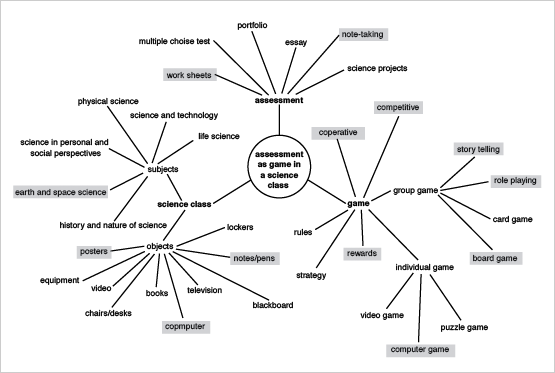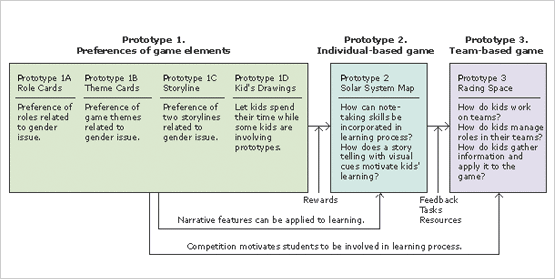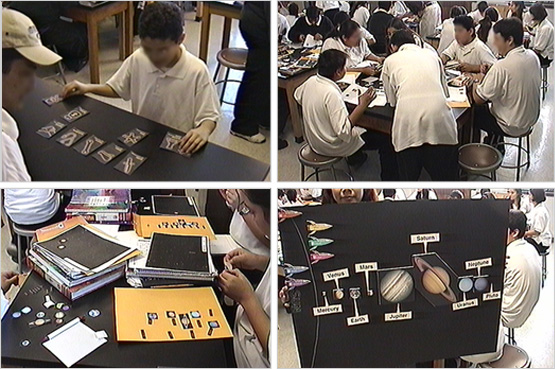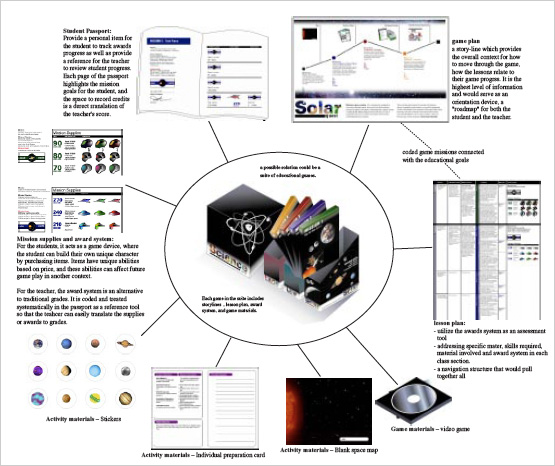Solar Quest
This was a team project where I worked with three other students. Based on our preliminary research we hypothesized that the traditional teaching models and the assessment methods focused on the subject-based goals with little emphasis on process skills such how to find information, how to ask questions, how to connect information, or how to take notes. Many educational goals relied heavily on these skills to meet objectives, but if students lacked skills then the educational process would be impaired.
We came up with a game-based assessment method, Solar Quest. In order for a game to work as an educational tool, it must consider the subject matter game-based goal instead of a grade-based goal. With the narrative structure of the game, we noticed the application of the educational materials and the knowledge became more meaningful to the students.
Three behavioral prototypes were designed and experimented in sequence in a 7th grade science class. The purpose was to get ideas such as kids' preferences about game types according to gender, forms of information, and ways of interacting with each other on a team. Insights from this process guided to develop the product concept.
After the behavioral prototypes, we designed conceptual prototypes to represent what products, environments and software might look like. These prototypes included concept sketches, paper prototypes of interface designs, and software prototypes that showed simulating functions.



